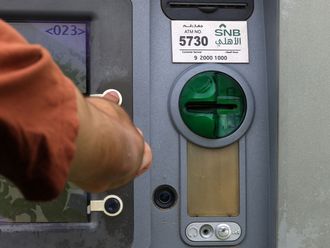
Dubai: The UAE is ready with the first draft of a new Federal Insolvency Law, which will be presented to the Cabinet early next year once a technical committee completes a thorough evaluation of its provisions, a senior official from the Ministry of Finance said yesterday.
"The UAE Ministry of Finance was mandated with the responsibility of creating a draft law dealing with insolvency and bankruptcy. The Ministry completed the draft and passed it on a technical committee in November. Once the committee completes its evaluation and amendments, the final draft will be submitted to the government," said Ahmad Mahmoud Al Hammadi, Assistant Undersecretary in the Ministry of Finance.
Speaking at a conference on insolvency reforms in the Middle East and North Africa (Mena) organised by Hawkama Institute of Corporate Governance, Al Hammadi said the Finance Ministry and the government are working on a new law that will bridge the gaps in the existing law.
He did not give any timeframe when the law would come into effect.
The new law, currently at the draft stage, will have clear provisions for bankruptcy procedures, defining the rights of shareholders and creditors in the event of insolvency, restructuring or even dissolution of a corporate entity.
Clear procedures
The new law will have clearly defined bankruptcy procedures and it will be equivalent to Chapter 11 procedures in the US.
"The draft law has updated the provisions of the existing law in the context of the expanding size of businesses and larger creditor exposure to these entities. The government is fully aware of the situation and is developing laws to suit the new business environment," Al Hammadi said. The existing bankruptcy regime set in the Commercial Transaction Law (Federal Law No. 18 of 1993) has provisions for dissolution of companies including bankruptcy. The dissolution of a company is triggered in the event of substantial loss of capital.
Many legal practitioners said the existing insolvency law is inadequate to deal with large businesses and the highly sophisticated business environment in the UAE. "At the time when the law was enacted the businesses were small. It could at best handle small traders and groceries," said Essam Al Tamimi, senior partner of Al Tamimi & Company.
"We need to strengthen the resilience and responsiveness of our economies and financial systems to shocks. This requires an enabling framework to deal with [mergers and acquisition], restructuring and reorganising and insolvency," Dr Nasser Saeedi, Chief Economist at the Dubai International Financial Centre, said.
"To undertake reform of insolvency regimes requires us to take a holistic view. Reform and modernisation are also required of related areas."












